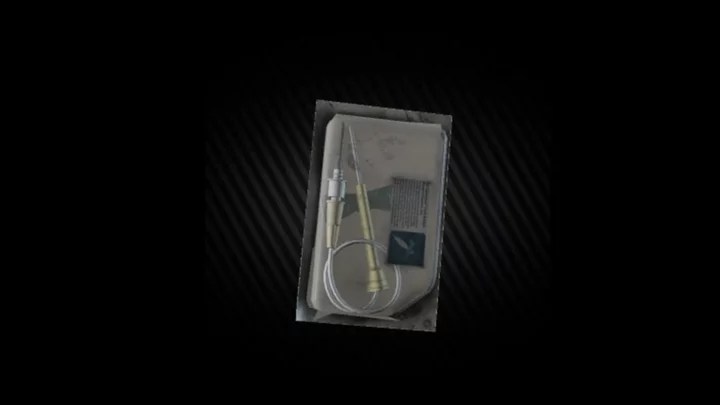
3 AI Keyboard Apps That Can Help Spruce Up Your Emails, Text Messages
You're writing an email, text message, blog post, document, or other content on your phone
2023-08-17 01:26

Pink Floyd song reconstructed from person’s brain activity
Neuroscientists have figured out how to reconstruct a song by decoding the brain signals of someone listening to it. A team from the University of California, Berkeley, reproduced Pink Floyd’s song ‘Another Bring in the Wall, Part 1’, after placing electrodes on the brains of patients and playing the music as they underwent epilepsy surgery. Analysis of the brain activity allowed the neuroscientists to create the song’s rhythm, as well as pick out understandable lines like “All in all it’s just another brick in the wall”. Scientists have previously used similar brain-reading techniques in an attempt to decipher speech from thoughts, but this is the first ever time that a recognisable song has been reconstructed from brain recordings. “It’s a wonderful result. One of the things for me about music is it has prosody and emotional content. As this whole field of brain machine interfaces progresses, this gives you a way to add musicality to future brain implants for people who need it, someone who’s got ALS or some other disabling neurological or developmental disorder compromising speech output,” said Robert Knight, a neurologist and UC Berkeley professor of psychology in the Helen Wills Neuroscience Institute who conducted the research. “It gives you an ability to decode not only the linguistic content, but some of the prosodic content of speech, some of the affect. I think that’s what we’ve really begun to crack the code on.” It is a significant development for brain-computer interface technology, which aims to connect humans to machines in order to fix neurological disorders or even add new abilities. Elon Musk claims that future versions of his Neuralink device will allow wearers to stream music directly to their brain, as well as cure depression and addiction by “retraining” certain parts of the brain. The scientists behind the latest research claim that advances in brain recording techniques could soon allow them to make detailed recordings using non-invasive techniques like ultra-sensitive electrodes attached to the scalp. “Non-invasive techniques are just not accurate enough today,” said postdoctoral fellow Ludovic Bellier, who was part of the research team. “Let’s hope, for patients, that in the future we could, from just electrodes placed outside on the skull, read activity from deeper regions of the brain with a good signal quality. But we are far from there.” The research was detailed in a study, titled ‘Music can be reconstructed from human auditory cortex activity using nonlinear decoding models’, published in the scientific journal PLoS Biology. Read More Paralysed man communicates first words in months using brain implant: ‘I want a beer’ Elon Musk’s Twitter slows down access to rival websites Musk’s Twitter takeover sparks mass exodus of climate experts Snapchat experiences ‘temporary outage’ as My AI chatbot posts own Story
2023-08-17 00:51

How to Get Bloodset in Escape from Tarkov
To get Bloodset in Escape from Tarkov, players can either craft one or find one in a medcase, ground cache, sport bag, or medical supply crate.
2023-08-17 00:29

The Iceman Baldeth: New Genome Analysis Shows Ötzi Had Surprising Ancestry—and Male-Pattern Baldness
Ötzi the Iceman may have gone bald in middle age—but hey, at least he had tattoos.
2023-08-16 23:53

Visa's pricing of token technology under DOJ probe - Bloomberg News
(Reuters) -Visa is under fresh investigation by the U.S. Department of Justice over allegations it is charging retailers more for
2023-08-16 23:23

The Best Streaming Apps for Kids
When looking for the best way to entertain kids with video, you have no shortage
2023-08-16 23:20

Pinterest Directors Quit Nextdoor Board on DOJ Antitrust Concerns
Two directors stepped down from Nextdoor Holdings Inc. after the US Justice Department raised concerns that they were
2023-08-16 22:57

Snapchat users freak out over AI bot that had a mind of its own
Snapchat users were alarmed on Tuesday night when the platform's artificial intelligence chatbot posted a live update to its profile and stopped responding to messages.
2023-08-16 22:54

US says two Pinterest directors resign from Nextdoor board of directors
Two Pinterest directors have resigned from Nextdoor's board of directors in response to U.S. Justice Department efforts to
2023-08-16 22:29

‘Killers of the Flower Moon’: The Grim True Story of the Osage Murders
'Killers of the Flower Moon' tells the story of the Osage murders, an especially bleak chapter of American history.
2023-08-16 22:20

Elon Musk’s Twitter slows down access to rival websites
Elon Musk’s X, formerly known as Twitter, slowed down access to rivals and news organisations, according to a new report. The company seemingly added a delay of as long as five seconds when people clicked on links to go elsewhere on the web, according to a Washington Post report. The delay was applied to a host of rival websites, including Facebook, Instagram and Bluesky. It was also used on the websites of news organisations that have been critical of Mr Musk, such as Reuters and the New York Times. Clicking a link on X to one of the affected websites resulted in a delay of about five seconds before the webpage loaded, the Washington Post reported, citing tests it conducted on Tuesday. Reuters also saw a similar delay in tests it ran. By late Tuesday afternoon, X appeared to have eliminated the delay. When contacted for comment, X confirmed the delay was removed but did not elaborate. Billionaire ElonMusk, who bought Twitter in October, has previously lashed out at news organizations and journalists who have reported critically on his companies, which include Tesla and SpaceX. Twitter has previously prevented users from posting links to competing social media platforms. Reuters could not establish the precise time when X began delaying links to some websites. A user on Hacker News, a tech forum, posted about the delay earlier on Tuesday and wrote that X began delaying links to the New York Times on Aug. 4. On that day, Musk criticized the publication’s coverage of South Africa and accused it of supporting calls for genocide. Reuters has no evidence that the two events are related. A spokesperson for the New York Times said it has not received an explanation from X about the link delay. “While we don’t know the rationale behind the application of this time delay, we would be concerned by targeted pressure applied to any news organization for unclear reasons,” the spokesperson said on Tuesday. A Reuters spokesperson said: “We are aware of the report in the Washington Post of a delay in opening links to Reuters stories on X. We are looking into the matter.” Bluesky, an X rival that has Twitter co-founder Jack Dorsey on its board, did not reply to a request for comment. Meta, which owns Facebook and Instagram, did not immediately respond to a request for comment. Additional reporting by Reuters Read More Twitter turning Tweetdeck into paid service after slowing down access to rivals The last parts of Twitter are being removed Musk pledges to fund legal bills of X users ‘unfairly treated’ by employers for posts Musk’s Twitter takeover sparks mass exodus of climate experts Snapchat experiences ‘temporary outage’ as My AI chatbot posts own Story WhatsApp rolls out AI tool for creating custom art
2023-08-16 21:58

Tesla Price Cuts Continue Even as Interest Rate Pressure Relents
For months, Elon Musk has pinned much of the blame for Tesla Inc.’s price cuts on central banks.
2023-08-16 21:49
